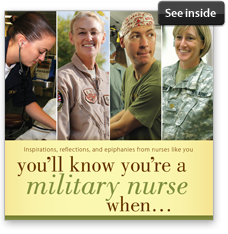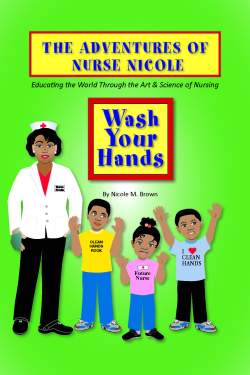
Transitions happen every day in your child’s world and September, like no other month, is a time of transitions for your child. Starting a new grade. Getting a new teacher. Learning new classroom rules. Adding more homework. No matter what the transition, you can expect an added level of stress as your child adapts to the change.
When making the transition to a new grade, your child will be challenged by more rigorous academic challenges, more social demands and more responsibility. Your child will have to follow the rules, take turns, make new friends, learn harder material and try to meet the requirements of a new teacher(s).
It takes a lot of energy, focus and control to keep it together all day long at school, so most kids will be tired and you’ll see an increase in temper tantrums, whining and defiance at home. Don’t take it personally! Recognize the stress that your child is under!
The best response to stress is to provide empathy and support, help the child gain a sense of control, create rituals that provide predictability and teach your child ways to de-stress.
Way to Show Empathy:
A.) Listen – Become an “empathic listener” by listening for feelings.
o Listen for the unspoken feelings that are behind the words that are said.
o Look at your child’s body language and try to gain helpful information.
o Listen with your heart.
o Don’t be critical.
o Give your child your full attention by sitting down, looking him/her in the eye.
o Try to reflect back the feeling that you believe your child is conveying.
B.) Ask open-ended questions. i.e. What will you miss about preschool? What do you like about your new teacher? What’s the hardest part of your day?
C.) Share a story from your childhood. The point here is to share a struggle that you had and the different feelings that you experienced. If you found a process that helped you overcome the struggle, share that, too.
Another important point to understand is that transitions involve a sense of loss:
A loss of fun. “I want to play with a friend now. I don’t want to do homework!”
A loss of spontaneity. “I’m tired and I’d rather have a jammy day than get dressed and go to school.”
Or a loss of my classroom as I know it. “This teacher is different. I liked my other teacher!”
Generally, when a child feels a sense of loss s/he feels a loss of control and a beneficial strategy is to help the child gain a sense of control. So how do you do that?
A.) Involve your child in the decision. Ask your child, “What might help you feel more comfortable?”
B.) Walk your child through the process, explaining how it will go. Knowledge is power.
C.) Show visual aids such as reading books on the subject.
D.) Explain the benefits so the child can learn the positives.
E.) Slow down the pace. Give your child a chance to wind down or to say goodbye.
F.) Learn to read your child’s cues and help him/her learn to identify them, too.
Another helpful strategy for reducing the stress of changes is to create a ritual. Family rituals help your child adjust to change. A ritual can be simple or elaborate, used daily, weekly, or once a year. The reason that rituals are important is that rituals help make the world predictable and the repetition helps kids feel more secure when transitions are occurring.
Rituals that Can Help with Transitions:
A.) Develop a goodbye ritual. Develop a secret handshake with your child that’s used only when s/he leaves for school.
B.) Develop an after-school ritual. Let your child have a snack and play outside for 30 minutes before starting homework.
C.) Develop a “chit-chat” time at bedtime. Ask your child about the happy, sad, scary and frustrating parts to his/her day.
D.) Develop an end-of-the-week ritual. Have a family night every Friday night to reconnect and unwind after a busy week.
Change also increases a child’s anxiety level because there is a loss of the familiar and the uncertainty of the future so finding safe, healthy outlets for a child’s anxiety is important, as well. Teaching your child how to soothe him/herself and providing calming activities will be a great help.
A.) Increase Physical Touch – Make a conscious effort to hug and kiss more often, snuggle more or provide massage to your child.
B.) Teach a Deep Breathing Method. (Pretend that there’s a balloon in his/her tummy that s/he has to blow up. Actually use a balloon to illustrate. The technique you want to have the child use is to breathe in through the nose and breathe out through the mouth, actually moving the diaphragm while pretending to blow up the balloon with big, deep breaths.)
C.) Consider Dramatics – Let your child use his/her imagination. “Let’s pretend that you’re the fairy godmother.” Get a wand. Let’s see what the fairy godmother would do to solve this problem. Create a movie, play or story about this problem. Play “School” to see what issues your child may be facing.
D.) Spend Time Alone with the Child – Let the child pick what the activity will be and focus on your child’s needs.
E.) Laugh – Find your own ways to be silly, have a kids’ joke book on hand, do something unexpected, watch your favorite family movie.
F.) Give Your Child a Journal – Writing about a problem can release pent-up feelings in a healthy way.
In summary, there are many useful strategies that you can use when your child is faced with a transition, large or small:
o Respond with empathy recognizing that your child may feel a sense of loss.
o Help your child gain a sense of control by involving him/her in decision-making.
o Develop a ritual to create predictability.
o Offer soothing and calming activities.









